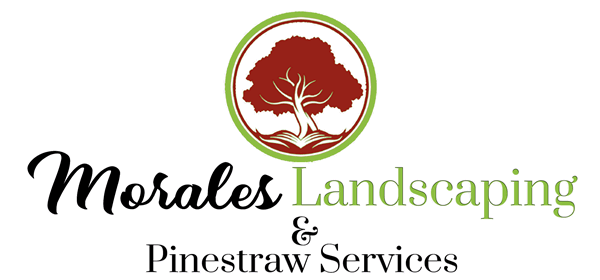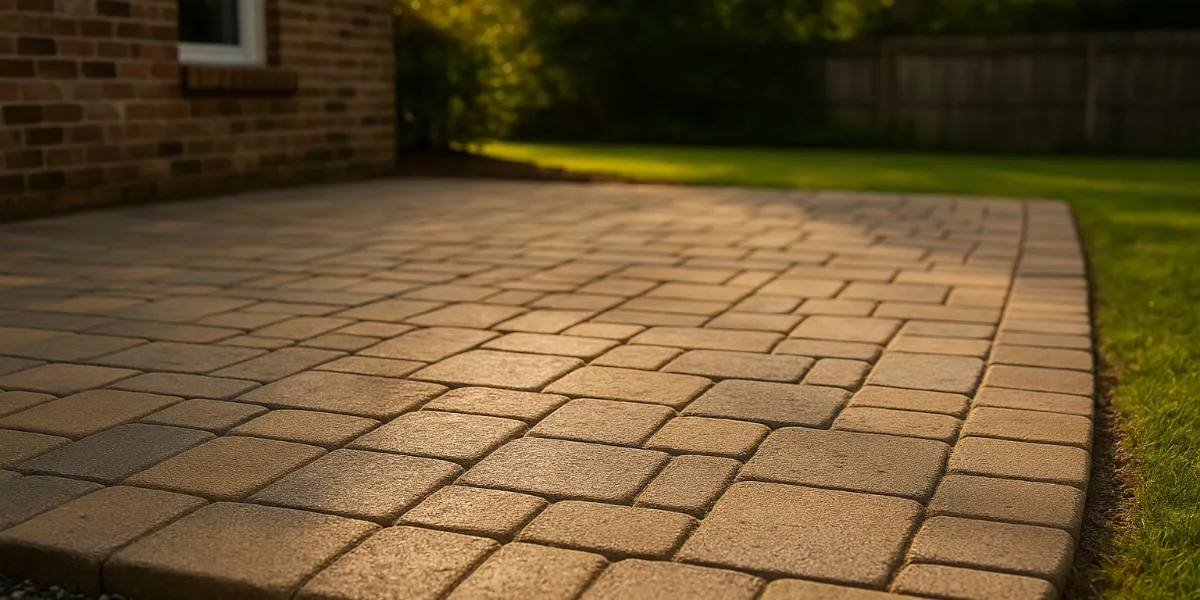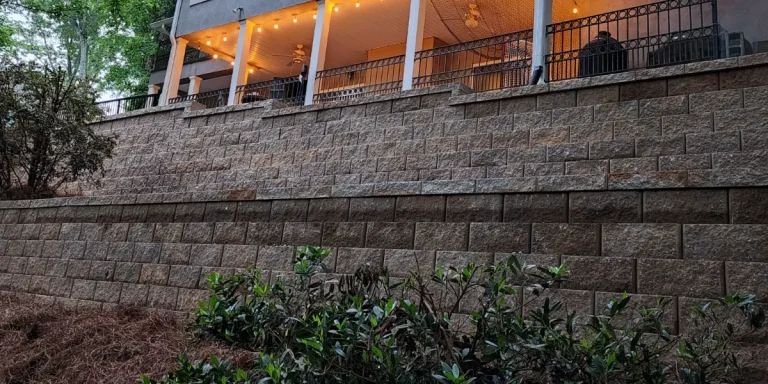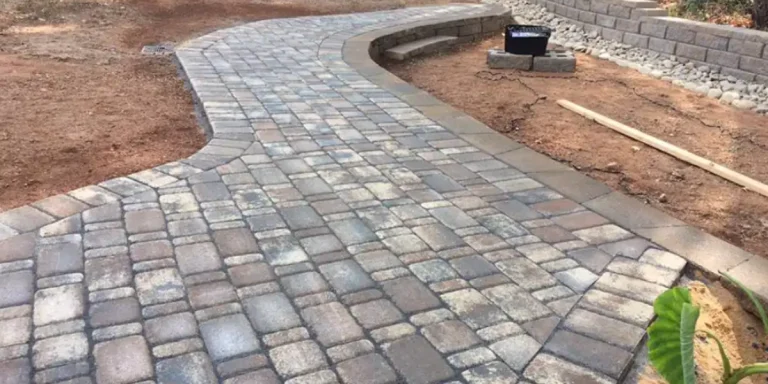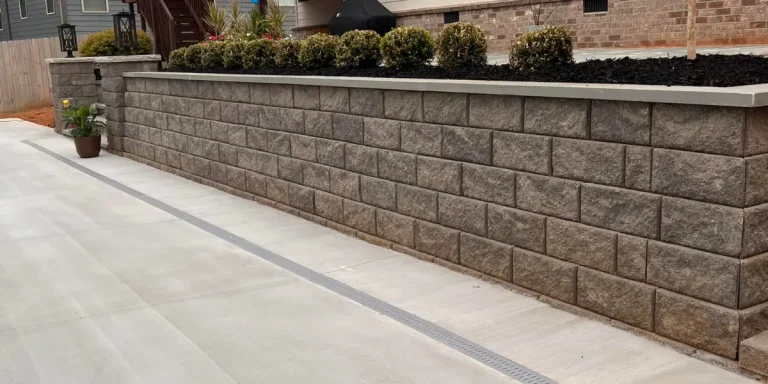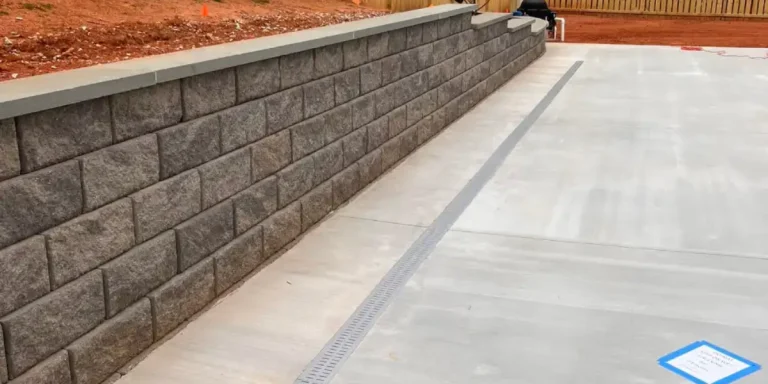Best Base Materials for a Long-Lasting Paver Patio
If you’re planning to install a paver patio in Greenville or surrounding Upstate South Carolina areas, choosing the right base material is critical. The strength, drainage, and longevity of your patio depend not just on the pavers you choose—but what’s beneath them. At Morales Landscaping & Tree Service, we specialize in professional patio installations built to last. This guide covers the best base materials and why they matter.
Why the base matters more than you think
A beautiful paver patio is only as strong as the foundation beneath it. While many homeowners focus on the choice of pavers or the pattern they’ll use, it’s what’s under those pavers that determines whether your patio will hold up for years—or start to fail within a season or two. The base is the unsung hero of any well-built patio, and it plays several critical roles.
Here’s why getting the base right is non-negotiable:
-
- It supports the weight of everything above it.
From foot traffic and patio furniture to outdoor kitchens and retaining walls, your pavers need a stable, compacted foundation to bear weight without shifting or settling. - It controls drainage and moisture flow.
A proper base prevents water from pooling beneath your patio. This is especially important in areas like Greenville, SC, where heavy rains and clay soil can easily lead to erosion or frost heaving in winter months. - It minimizes weed intrusion and root movement.
A well-compacted base with the right materials limits the space and nutrients that weeds need to grow. It also keeps pavers from being lifted or displaced by nearby tree roots or shifting soil. - It keeps your patio level and uniform.
Without a stable base, pavers may shift, tilt, or sink—creating uneven surfaces, tripping hazards, and unsightly dips or bulges over time. - It increases the longevity of your investment.
A patio with a well-built base can last 20–30 years with minimal maintenance. Skimping on the foundation often results in costly repairs, relaying, or full removal within a few short years.
- It supports the weight of everything above it.
Whether you're planning a cozy backyard retreat or an expansive outdoor entertaining space, the quality of the base will determine the lifespan, safety, and visual appeal of your project. At Morales Landscaping & Tree Service, we never cut corners. Every patio we build starts with a carefully constructed, purpose-driven base designed to last through Greenville’s seasons and soil conditions.
Most common base materials for paver patios
Choosing the right base material is essential to the success of your paver patio. Each layer plays a specific role, from supporting weight and managing drainage to preventing shifting and weed growth. Below are the four most commonly used materials and why they matter—especially in Upstate South Carolina’s climate and soil conditions.
1. Crushed Stone (Granular A or Crusher Run)
This is the go-to base material for most paver installations in South Carolina—and for good reason.
What it is:
A well-graded mix of crushed limestone or granite, typically ranging from ¾” angular stones down to stone dust.
Why it works so well:
-
-
- Superior compaction – Angular stones interlock tightly, creating a firm, stable base.
- Smooth finish – The fine dust fills gaps between larger particles, allowing for precise leveling.
- Great drainage – When installed in multiple compacted lifts, this base sheds water effectively.
- Strong support – Withstands foot traffic, patio furniture, and even vehicle loads in driveways.
-
Ideal for:
Nearly all residential hardscapes, including patios, walkways, driveways, fire pit areas, and outdoor kitchens.
At Morales Landscaping & Tree Service, we install crushed stone in multiple compacted layers to ensure maximum strength and long-term stability.
2. Washed Concrete Sand (Bedding Layer)
Although not a structural base, the bedding layer sits directly beneath the pavers and plays a critical role in the finish and performance of your patio.
Why it’s important:
-
-
- Smooths out minor imperfections in the crushed stone base.
- Creates a level, adjustable setting bed for the pavers.
- Allows pavers to “seat” into place during compaction for a snug, even fit.
- Enhances water flow through the surface, reducing pooling.
-
Installation tip:
We apply a consistent 1-inch layer of concrete sand over the compacted base before laying pavers. It’s then screeded smooth to ensure a uniform foundation.
3. Dense Grade Aggregate (DGA)
Dense grade aggregate is very similar to crusher run but typically has a slightly higher proportion of fines, making it excellent for areas requiring extra durability.
Best used for:
-
-
- High-traffic areas like patios that will support hot tubs or grills
- Heavy-duty driveways
- Sloped areas where erosion control is a concern
-
Benefits of DGA:
-
-
- Exceptional compaction for load-bearing support
- Effective water control, reducing the risk of freeze-thaw damage
- Long-term durability even in challenging soil conditions
-
Pro tip:
We often recommend DGA for Greenville-area clients whose patios will support heavy loads or are being installed on steep or unstable ground.
4. Open-Graded Stone (¾” Clean Gravel)
Used primarily in permeable paver systems, this material contains no fines, which allows water to pass directly through the base.
Why choose it:
-
-
- Outstanding drainage – Ideal for stormwater management and eco-conscious properties
- Prevents water pressure buildup under pavers
- Minimizes frost heave in freeze-prone areas
- Ideal for areas with strict runoff regulations or where erosion is a concern
-
Installation notes:
-
-
- Typically used in conjunction with geotextile fabric to keep layers separated and maintain integrity
- Requires specialized knowledge of permeable paver systems
- Must be compacted properly in lifts, despite its open structure
-
At Morales Landscaping & Tree Service, we offer permeable paver solutions using open-graded stone bases for homeowners who want both beauty and environmental performance.
Each base material serves a different purpose depending on your patio's design, location, and intended use. Choosing the right one is key to ensuring your paver patio remains level, attractive, and functional for decades—not just a few seasons. Our team always considers local soil conditions, drainage patterns, and structural needs to recommend the ideal base for every project.
How we build a strong paver base
At Morales Landscaping & Tree Service, we don’t cut corners when it comes to building durable, long-lasting paver patios. Whether you’re creating a peaceful backyard retreat or a high-traffic entertaining space, the integrity of the base is what ensures your investment lasts for decades—not just a few seasons. Here’s how we do it:
1. Excavation and site preparation
Every successful patio starts with a clean, level foundation. We begin by:
-
-
- Removing all topsoil and organic material, which can shift or settle over time
- Digging to the appropriate depth based on the paver thickness, intended use (pedestrian or vehicular), and local soil conditions
- Checking for drainage patterns and identifying low spots or areas prone to pooling
-
This sets the stage for a stable, well-graded installation.
2. Geotextile fabric installation (optional but recommended)
In many parts of Greenville and the Upstate, the natural soil is rich in clay—which can lead to base shifting or water retention over time. That’s why we often recommend:
-
-
- Laying down geotextile fabric between the soil and the crushed stone base
- Preventing mixing of the base material with soft subsoil, which weakens compaction
- Improving long-term drainage performance
-
This step is especially important for patios on slopes or in areas with poor native soil.
3. Base material installation (crushed stone)
The heart of a solid paver patio is the compacted stone base. We use:
-
-
- Granular A or crusher run, installed in 3–4 inch lifts
- Mechanical compaction between each layer using a plate compactor
- Total base depth of 6 to 12 inches, depending on whether the patio will support foot traffic, furniture, or vehicles
-
This ensures unmatched structural support and resistance to settling.
4. Bedding layer (washed concrete sand)
Before pavers are laid, we add:
-
-
- A uniform 1-inch layer of washed concrete sand
- Screeded smooth to create a perfectly level surface
- Flexible enough to allow slight paver adjustment, yet firm enough to hold shape during compaction
-
This step is crucial for tight seams and a level finish.
5. Edge restraints for stability
Edge restraints are often overlooked, but they’re key to a long-lasting installation. We install:
-
-
- Rigid plastic, aluminum, or concrete edge restraints around the perimeter
- Secured with spikes into the compacted base
- Designed to prevent lateral shifting, keeping your pavers from creeping outward over time
-
Without proper edging, patios are far more likely to deform, especially on slopes or during freeze-thaw cycles.
6. Paver laying, compaction, and polymeric sand sealing
Once the pavers are laid in the desired pattern:
-
-
- We compact the surface again, helping the pavers lock into the bedding layer
- Polymeric sand is swept into all joints, hardening with moisture to resist weeds, ants, and erosion
- Final pass with a compactor ensures tight joints and a finished, polished surface
-
The result? A smooth, even patio that won’t shift, settle, or degrade prematurely.
Whether you’re installing a patio, walkway, or paver driveway, our team at Morales Landscaping & Tree Service uses proven methods and high-quality materials to deliver results that last. Our approach combines experience, engineering, and attention to detail—backed by service you can trust across Greenville and the Upstate region.
Choosing the right base for your project
The best base for your patio depends on:
-
- Soil type – Clay soil may need deeper excavation or geotextile fabric.
- Drainage conditions – Poor drainage areas benefit from open-graded stone or French drains.
- Intended use – Driveways need more base than foot traffic patios.
- Budget and maintenance – Some bases cost more but reduce repairs long term.
Our team will assess your yard’s slope, soil, and conditions before recommending the best materials for your project.
Proudly Serving Greenville and Beyond
Morales Landscaping & Tree Service provides professional paver patio installations and hardscaping services in:
-
- Greenville
- Easley
- Clemson
- Simpsonville
- Greer
- Travelers Rest
- Seneca
- Salem
- Landrum
Get a Paver Patio That Lasts
Build it right the first time with Morales Landscaping & Tree Service
A beautiful patio starts with the right foundation. Contact us today for a consultation and let us help you design and install a patio that performs as well as it looks. Whether you're starting from scratch or fixing an old patio with drainage or settling issues, we’re here to help.
Call now or request a quote online to get started. We proudly serve homeowners across Upstate South Carolina with professional hardscaping, drainage, and landscaping services.
